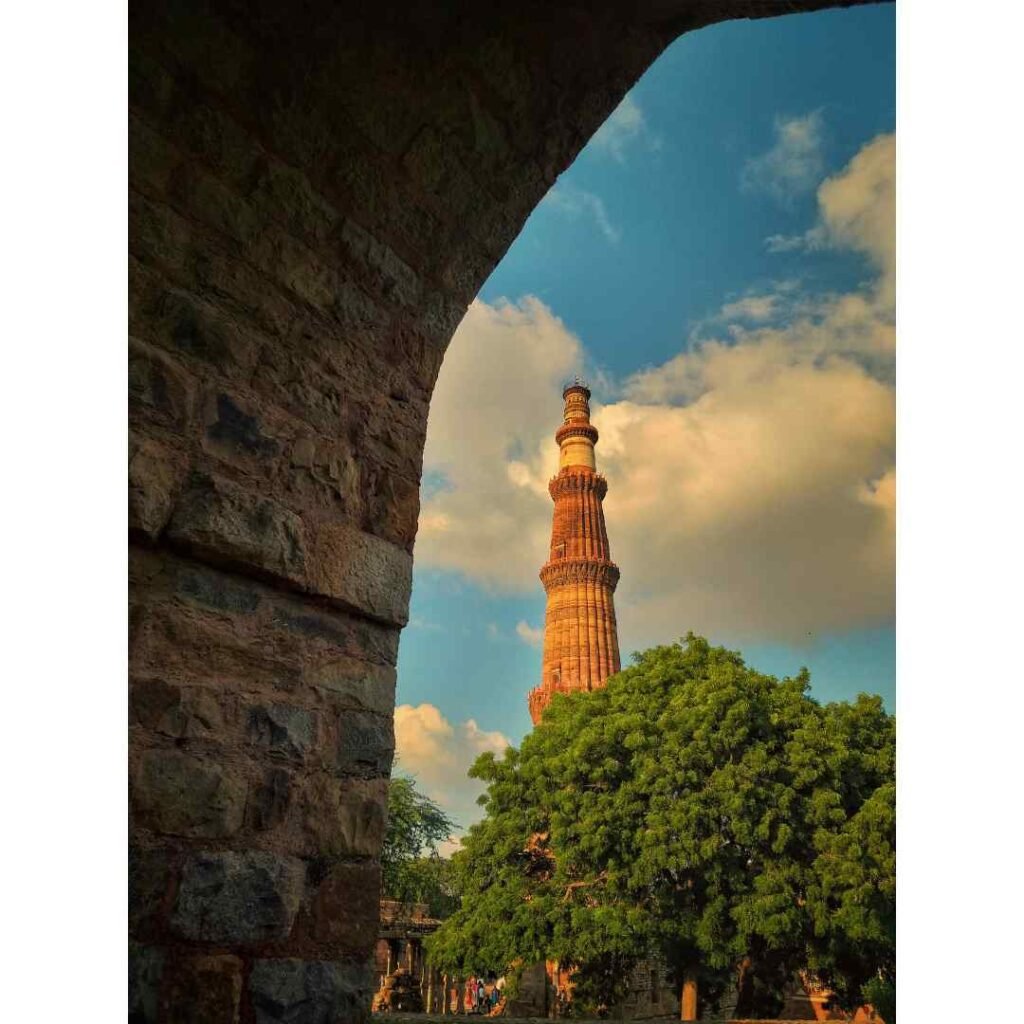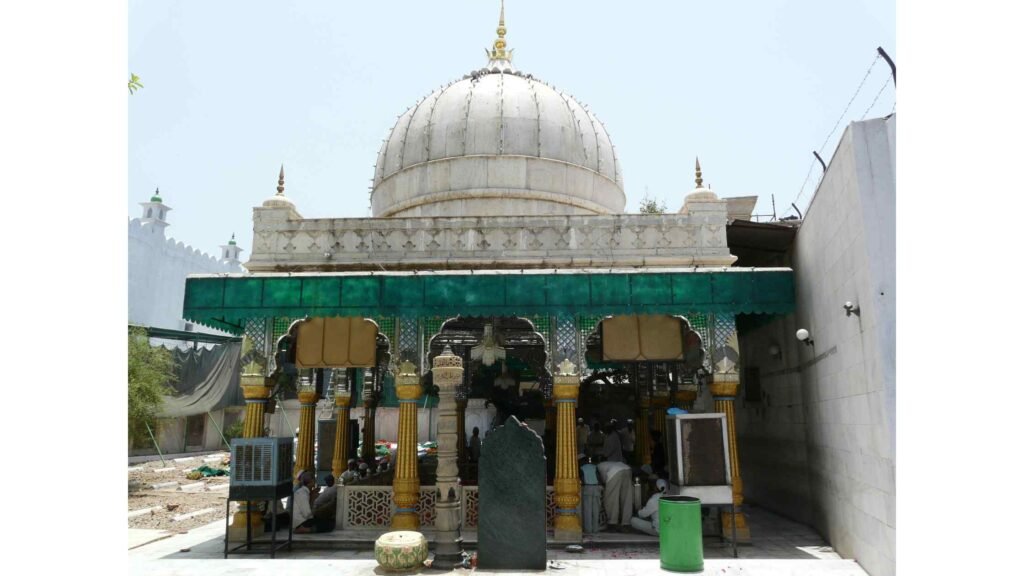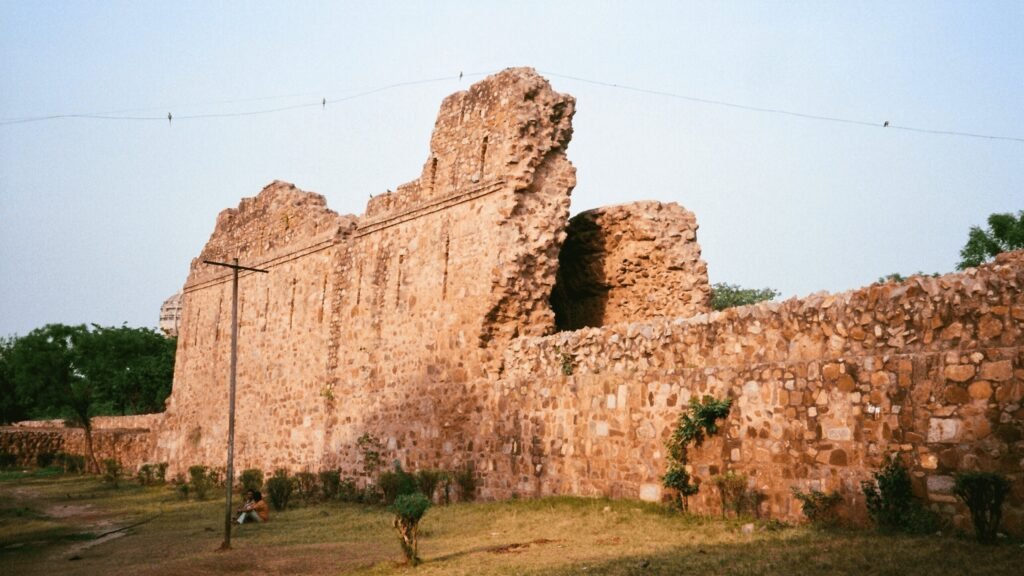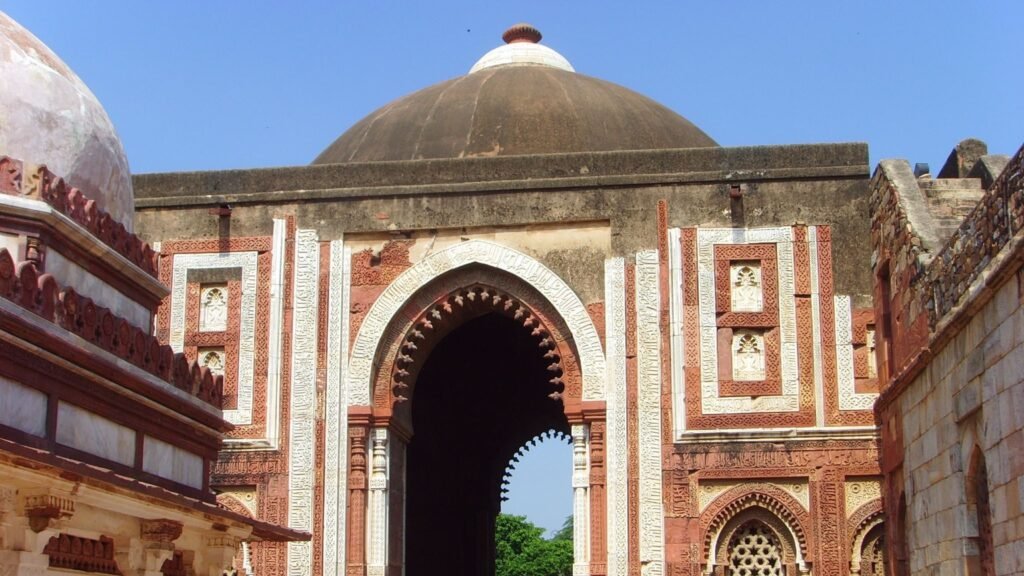Most of us know who built the Qutub Minar. The Delhi Sultan Qutub-ud-din Aibak commissioned it in 1199 as a tower to commemorate the victory of his master and mentor, Mohammed Ghori. He died before he could complete it, though, and it was his successor, Iltutmish, who completed it 20 years later. Unsurprisingly, Iltutmish named it after his master and predecessor, Qutub-ud-din Aibak.

But did he, really? Some historians think that Iltutmish had a different Qutub-ud-din in mind when he christened the tower – Qutub-ud-din Bakhtiyar Kaki!
Detour: While this story is about the ‘Other Qutub’, we have another story about the ‘Other Minar’ at the Qutub complex as well. Watch the video here.
Qutub ul Aqtab Khwaja Sayyid Muhammad Bakhtiyar Al Hussaini Qutub-ud-din Bakhtiyar Kaki (Kaki) – try fitting that on a birthday cake! – was originally from Kyrgyzstan, but settled in Delhi sometime around 1210 CE. He is believed to have been a descendant of Prophet Mohammed, through the prophet’s grandson Husayn. He apprenticed under the famous Sufi saint Khwaja Moinuddin Chishti of Ajmer, and became a venerated Sufi saint himself. The Sufis are mystics who believe in universal love and brotherhood. They advocate peace and charity towards all. Chishti encouraged Kaki to go to Delhi and spread Sufi philosophy, and that’s how Kaki became a citizen of Delhi.
In Delhi, he regularly preached about seeking God through universal love. In his ‘Majlis’ or gatherings, there was divine poetry, singing and dancing, and people of all faiths, whether they were rich or poor, joyously participated. There were many powerful people who were amongst his admirers; that included the sultan Iltutmish himself. But Kaki distanced himself from power and wealth, and lived a life of poverty.
Story goes that this became a problem for his wife, who needed bread to run the household and often ran up debts with the baker! When Kaki noticed this, he advised her not to beg from the baker but to go to a corner in the house and ask God directly. Lo and behold, her prayer was answered and she got Kaak (a form of bread popular in Central Asia) from the said corner of the house, thanks to Kaki’s spiritual powers. Now Kaki was a modest man, so he told his wife to not talk about it to anyone. If she did, he warned, the miracle would stop working immediately. Kaki’s wife agreed. But when she stopped going to the bakery, the baker got worried: had he somehow offended the holy man and his wife? So he went to her and apologised profusely. Kaki’s wife felt sorry for the distraught baker, and revealed the truth about the miracle. And just as her husband had predicted, the supply of bread stopped. But her husband was soon acclaimed as ‘Kaki’, the man who miraculously produced Kaak!

Years passed. Once, a Sufi poet recited a devotional poem to Kaki, which sent the latter into an ecstatic trance. He never woke up and died soon after. His will was then read out, and as expected, he had no earthly treasure to leave. But the will mentioned how he wanted his funeral to be conducted. It declared that only a person who sincerely recited all the daily prayers, without missing any of them, and had never committed any of the sins proscribed by the Quran, should lead the procession. This was a tough condition even for long-time Muslim devotees, so no one came forward to lead the funeral. At last, Sultan Iltutmish himself came forward as a pious Muslim. He tearfully announced that he had never intended to advertise his piety, but the saint’s command had now forced him to do it. Thus, his funeral was led by the king himself!
So, is the Qutub Minar named after the sultan, or the Sufi? Your guess is as good as ours!
For more stories of the Qutub Minar, download the Storytrails audio tour of Qutub Minar and experience the monument in your own time, at your own pace.







